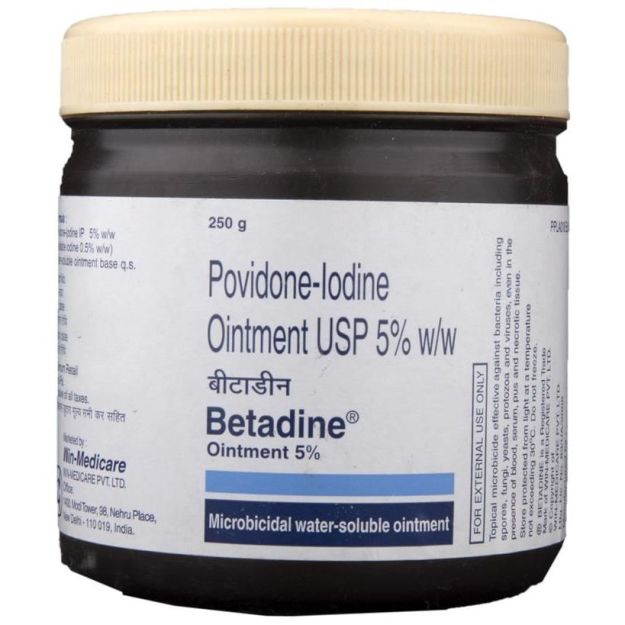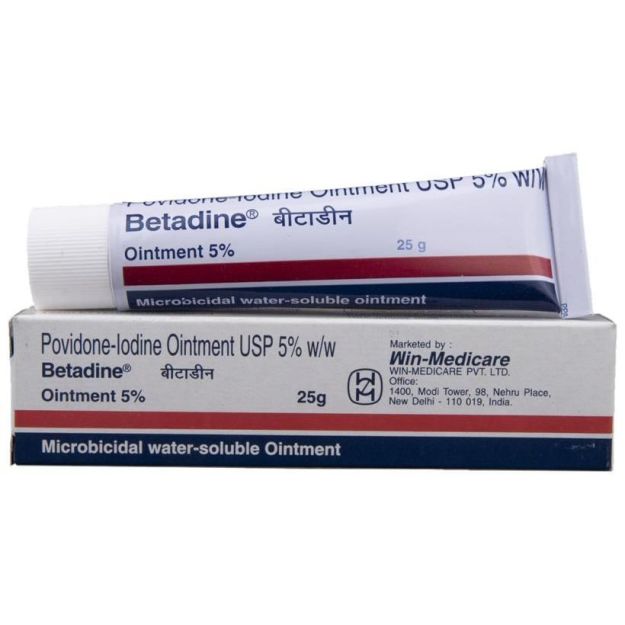Betadine 10% Ointment 15gm, a prescription drug, is manufactured in various forms such as Ointment. It is primarily used for the treatment of Infections, Open Wound. Betadine 10% Ointment 15gm also has some secondary and off-label uses. These are listed below.
The optimal dosage of Betadine 10% Ointment 15gm is largely dependent on the individual's body weight, medical history, gender and age. The condition it has been prescribed for, and the route of administration also determine the right dosage. Refer to the dosage section for a detailed discussion.
While these are the most often observed Betadine 10% Ointment 15gm side effects, there are can be others also. These have been listed below. Usually, these side effects of Betadine 10% Ointment 15gm go away soon, and do not persist beyond the duration of the treatment. Please speak with your doctor if these side effects worsen or persist for a longer duration.
Furthermore, you should know that effect of Betadine 10% Ointment 15gm is Moderate for pregnant women and Moderate for women who are breastfeeding. In addition, Betadine 10% Ointment 15gm's effects on the liver, heart and kidney are discussed below in the Betadine 10% Ointment 15gm related warnings section.
Individuals suffering from medical conditions like Drug Allergy must refrain from the use of Betadine 10% Ointment 15gm since this can cause severe adverse effects. The section on Betadine 10% Ointment 15gm contraindications lists all such conditions.
Drug interactions for Betadine 10% Ointment 15gm have been reported in the medical literature. Refer to the list below for further details.
You should also be aware that Betadine 10% Ointment 15gm is safe while driving, and is addiction.
X

















